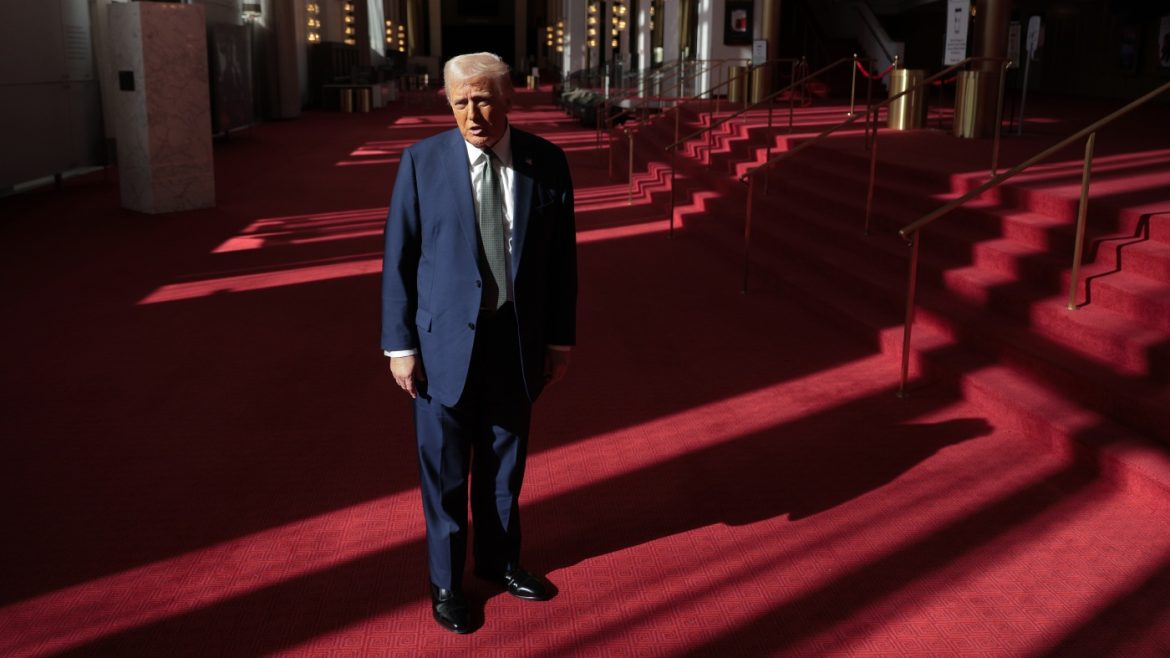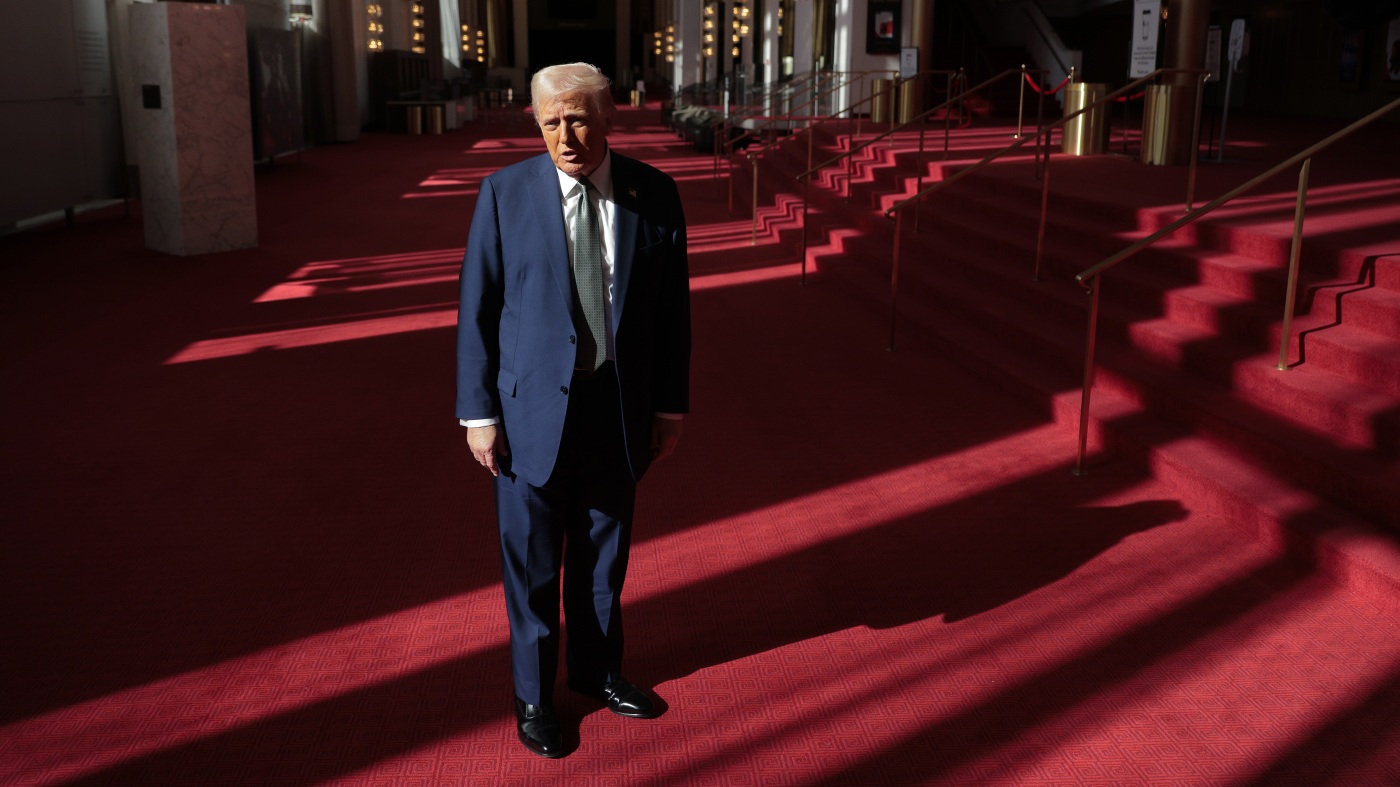Controversy Surrounding the Kennedy Center’s Management Under Trump’s Leadership
The John F. Kennedy Center for the Performing Arts, a prestigious cultural institution in Washington, D.C., has recently been thrust into the spotlight due to significant political changes and leadership upheaval initiated by President Donald Trump during his second term. Central to the controversy are Trump’s sharp criticisms over the Center’s condition and management, and the pushback from former leadership defending their tenure. This analysis delves into the events, rhetoric, and implications surrounding the evolving governance of the Kennedy Center.
—
Trump’s Critique of the Kennedy Center
On a highly publicized tour in March 2025, President Trump publicly lambasted the Kennedy Center, describing it as being in “tremendous disrepair.” He attributed the facility’s deterioration primarily to “bad management,” which he insisted was emblematic of broader issues afflicting many American institutions. Trump characterized the previous leadership as responsible for neglect, stating that past eras of “rampant political propaganda” were at an end. His remarks underscored a pledge to spearhead a comprehensive overhaul of the Center, emphatically promising to “make it great.”
In addition to physical maintenance issues, Trump’s administration took aggressive steps to reshape the institution’s leadership structure. Within weeks of assuming chairmanship of the Kennedy Center’s Board of Trustees—an entirely Trump-appointed body—the previous president, Deborah Rutter, and certain board members, including billionaire David Rubenstein, were ousted. Trump filled the board with loyalists and assumed a new hands-on role directing programming and honors decisions. He controversially suggested inducting figures from outside the traditional arts sphere, such as Babe Ruth, and indicated a desire to shift away from what he framed as overly “woke” cultural programming.
Furthermore, Richard Grenell, appointed by Trump as the Kennedy Center’s president, alleged deferred maintenance and deficits commonly found in arts nonprofits amounted to “criminal” neglect, threatening to refer the matter for federal investigation. This rhetoric reinforced the administration’s narrative of systemic mismanagement predating their control.
—
Former Leadership’s Rebuttals and Defense
Deborah Rutter, who led the Kennedy Center for a decade prior to her February 2025 removal, vocally refuted Trump’s accusations. In a strongly worded statement, Rutter expressed being “deeply troubled by the false allegations” regarding the Center’s management during her tenure. She and other former executives denied any financial fraud or gross neglect, suggesting instead that the newly installed leadership was scrambling to assign blame for fiscal challenges emerging under their watch.
Rutter’s defense emphasized that the kinds of deferred maintenance and budget deficits pointed to by the Trump-appointed leadership are typical challenges among major nonprofit arts organizations. Her stance was supported by reports that the Kennedy Center had been a respected venue with a history of celebrating American artists and hosting annual honors, a tradition disrupted by the leadership and board changes.
The firing of the former president and replacement of the entire board triggered concern among cultural observers about the politicization of a historically prestigious cultural institution, notably one dependent on approximately $85 million annually in donations. Questions arose as to whether the donor base and public support might wane due to perceived instability and ideological shifts.
—
Implications of the Leadership Overhaul and Politicization
The takeover of the Kennedy Center by President Trump and his appointees represents a rare instance of a sitting president assuming a direct leadership role in a major cultural institution, raising complex issues about governance, artistic independence, and politicization.
Impact on Programming and Artistic Direction:
Reports note Trump’s interest in reshaping programming to align with his vision, involving less emphasis on diverse or socially progressive works and a greater focus on celebrities outside traditional arts fields. This strategic pivot risks alienating established audiences and artists. Speculation includes the potential for boycotts or reduced participation from performers who disagree with the new direction.
Financial and Maintenance Challenges:
Though deferred maintenance issues are acknowledged, experts caution that such challenges are endemic in aging public arts facilities and do not necessarily indicate intentional mismanagement. The framing of genuine operational difficulties as criminal or malicious neglect may complicate donor relationships and public perception.
Political Overtones and Public Trust:
The rapid purge of longstanding Kennedy Center leadership and wholesale replacement of trustees with political loyalists fuel narratives about undermining institutional independence for partisan gain. This politicization could diminish public trust and alter the Center’s reputation domestically and internationally.
—
Toward the Future: Stakes and Hopes
As Trump’s administration seeks to “fix” the Kennedy Center, the future of this iconic establishment hangs in the balance. The tensions between new leadership’s ambition for radical reform and the previous administration’s defense rooted in tradition and stability illuminate broader debates about culture, politics, and management in America.
Preserving Artistic Legacy:
The Kennedy Center’s mission to honor and promote performing arts is widely cherished. Ensuring that political considerations do not eclipse artistic merit will be critical for sustaining the institution’s stature and contributions.
Engaging Stakeholders:
Balancing donor expectations, artist participation, and audience interests amid leadership shifts will require nuanced governance and transparent communication. Abrupt changes risk fracturing the stakeholder base essential for financial and cultural viability.
Maintaining Infrastructure:
Addressing deferred maintenance with well-planned investments, possibly supported by recent Congressional proposals for increased federal funding, could help reverse the physical decline highlighted by the current board while respecting stewardship principles.
—
Conclusion: A Cultural Battleground Reflecting Larger Turbulences
The saga unfolding at the Kennedy Center serves as a microcosm of polarized governance and cultural conflict in contemporary America. Trump’s assault on what he brands as entrenched mismanagement and “woke” programming unleashed a dramatic overhaul marked by controversy, resistance, and uncertainty.
Whether this intervention revitalizes the Kennedy Center or diminishes its revered legacy depends on the ability of its leaders to navigate the competing demands of political agendas, financial realities, and artistic integrity. As the Center attempts to reconcile its storied past with its politically charged present, the nation watches closely—aware that the outcome will resonate far beyond its marble halls.


